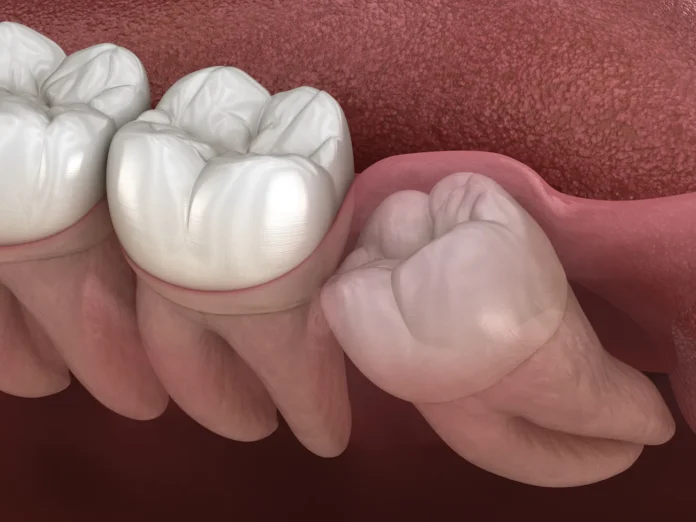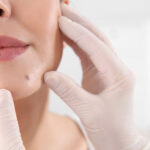Oral and maxillofacial surgery might sound intimidating, but understanding it can demystify the process. Whether you’re dealing with a complex dental issue or considering corrective jaw surgery, this specialized field plays a crucial role in maintaining your overall oral health. With advancements in technology and techniques, these surgeries are often less daunting than they seem.
In Glendale, patients have access to skilled surgeons who are well-versed in everything from wisdom teeth extractions to facial trauma repair. This guide will walk you through what oral and maxillofacial surgery entails, its significance, common procedures performed, preparation tips, recovery insights, potential risks involved, and how to find the right surgeon for your needs. Engaging with this information empowers you as a patient—knowledge is key when making decisions about your health care journey!
What is Oral and Maxillofacial Surgery?
Oral and maxillofacial surgery is a specialized branch of dentistry that focuses on diagnosing and treating conditions affecting the mouth, jaw, face, and neck. These skilled surgeons address a variety of issues ranging from dental implants to facial injuries.
This field requires extensive training beyond dental school. Surgeons typically complete additional years in residency programs to master surgical techniques and patient care.
Procedures often involve intricate work with bones, soft tissues, nerves, and facial structures. This expertise allows them to perform surgeries related to both cosmetic enhancements and reconstructive needs.
Patients may seek these services for numerous reasons—whether it’s correcting misaligned jaws or removing impacted teeth. The blend of art and science in oral and maxillofacial surgery makes it an essential aspect of modern health care solutions focused on improving function as well as aesthetics.
The Importance of Oral and Maxillofacial Surgery
Oral and maxillofacial surgery plays a crucial role in maintaining both health and aesthetics. It addresses complex issues involving the mouth, jaw, and face that regular dental procedures cannot solve.
This specialty is vital for treating trauma injuries, such as fractures or lacerations. These conditions can severely impact one’s quality of life and require expert intervention to restore function.
Moreover, oral surgeons perform corrective surgeries for congenital defects like cleft palates. Their work not only enhances physical appearance but also improves speech and eating capabilities.
The field also encompasses wisdom teeth removal, which helps prevent overcrowding and future complications. Timely surgical care minimizes discomfort while promoting better oral health overall.
In addition to these practical benefits, successful outcomes can greatly boost self-esteem and confidence in patients. When individuals feel good about their smiles or facial structure, it positively influences various aspects of their lives.
Common Procedures in Oral and Maxillofacial Surgery
Oral and maxillofacial surgery encompasses a variety of procedures, each tailored to address specific issues. One common procedure is wisdom tooth extraction. These third molars often create crowding or become impacted, leading to pain and infection.
Another significant intervention involves corrective jaw surgery. This aims to realign the jaw for improved function and aesthetics, addressing issues like misalignment that can affect biting and chewing.
Facial trauma repair is also crucial in this field. Surgeons skillfully reconstruct facial bones after accidents or injuries, restoring both appearance and functionality.
Dental implants have gained popularity as well. They provide a permanent solution for missing teeth by anchoring artificial roots into the jawbone.
Additionally, tumor removal from the oral cavity is essential for maintaining health. This delicate procedure helps ensure patients are free from harmful growths while preserving surrounding tissues when possible.
Preparation for Oral and Maxillofacial Surgery
Preparing for oral and maxillofacial surgery involves several important steps that can greatly influence your experience and recovery. First, it’s essential to have a thorough consultation with your surgeon. Discuss any concerns or questions you may have.
Next, follow pre-operative instructions carefully. This often includes dietary restrictions, like avoiding solid foods for a certain period before the procedure. If you’re on medication, make sure to inform your surgeon about everything you’re taking.
Arranging transportation is also crucial. Since sedation might be used during surgery, having someone drive you home ensures safety post-procedure.
Consider setting up a comfortable recovery space at home. Stocking up on soft foods and medications ahead of time will help ease the transition after surgery and allow for a smoother healing process.
Aftercare and Recovery Process
After undergoing oral and maxillofacial surgery, proper aftercare is crucial for a smooth recovery. Your surgeon will likely provide specific instructions tailored to your needs.
Rest is essential during the initial days post-surgery. Allow your body time to heal by minimizing physical activity. This aids in reducing swelling and discomfort.
Pain management might involve prescribed medications or over-the-counter options. Follow dosage recommendations closely for optimal relief.
Diet plays a significant role as well. Stick to soft foods while avoiding anything overly hot or spicy until you feel ready for more solid options. Hydration also supports healing; sip water regularly throughout the day.
Keep an eye on any unusual symptoms, such as excessive swelling or bleeding. If something feels off, don’t hesitate to reach out to your healthcare provider for guidance and reassurance during this vital period of recovery.
Risks and Complications
Every surgical procedure carries some level of risk, and oral and maxillofacial surgery is no exception. While many patients experience successful outcomes, it’s crucial to understand potential complications.
Infection is one concern. The mouth houses numerous bacteria, making the surgical site vulnerable. Proper hygiene before and after surgery helps mitigate this risk.
Nerve damage can occur during procedures involving the jaw or facial structures. This may lead to temporary or permanent numbness in the face, lips, or tongue.
Additionally, excessive bleeding might happen during surgery or in recovery. Though rare, it’s important for your surgeon to monitor this closely.
Another consideration is anesthesia-related reactions. Patients must disclose their medical history thoroughly to minimize such risks.
Being aware of these possibilities allows you to engage actively with your healthcare provider about safety measures tailored for you.
Finding the Right Surgeon
Choosing the right surgeon for your oral and maxillofacial surgery is a pivotal decision. Start by researching qualified professionals in Glendale who specialize in this field.
Look at their credentials, experience, and patient reviews. A skilled surgeon should have a solid background in both oral surgery and relevant medical training.
Schedule consultations to get a sense of their approach and how comfortable you feel with them. Communication matters; they should explain procedures clearly and answer your questions patiently.
Don’t hesitate to ask about their success rates with specific surgeries similar to what you need. Personal referrals can also be invaluable; friends or family may recommend someone trustworthy.
Trust your instincts during the selection process—feeling confident in your surgeon can significantly impact your overall experience and recovery journey.
Conclusion
Oral and maxillofacial surgery is a specialized field that plays a vital role in addressing various dental and facial issues. Understanding the importance of this type of surgery can empower patients to make informed decisions regarding their health.
With common procedures ranging from wisdom tooth extraction to complex reconstructions, the scope of oral and maxillofacial surgery is broad. Preparation for these surgeries often includes consultations, imaging studies, and thorough discussions about anesthesia options. Post-operative care is equally critical, ensuring proper healing while minimizing discomfort.
While there are risks involved with any surgical procedure, advancements in techniques have made oral and maxillofacial surgeries safer than ever before. Finding a skilled surgeon who understands your unique needs can enhance both safety and outcomes.
Choosing to undergo oral and maxillofacial surgery in Glendale means seeking out experienced professionals committed to providing exceptional care. Whether you’re looking for treatment or just need more information, being proactive will set you on the right path toward achieving your desired results.
































